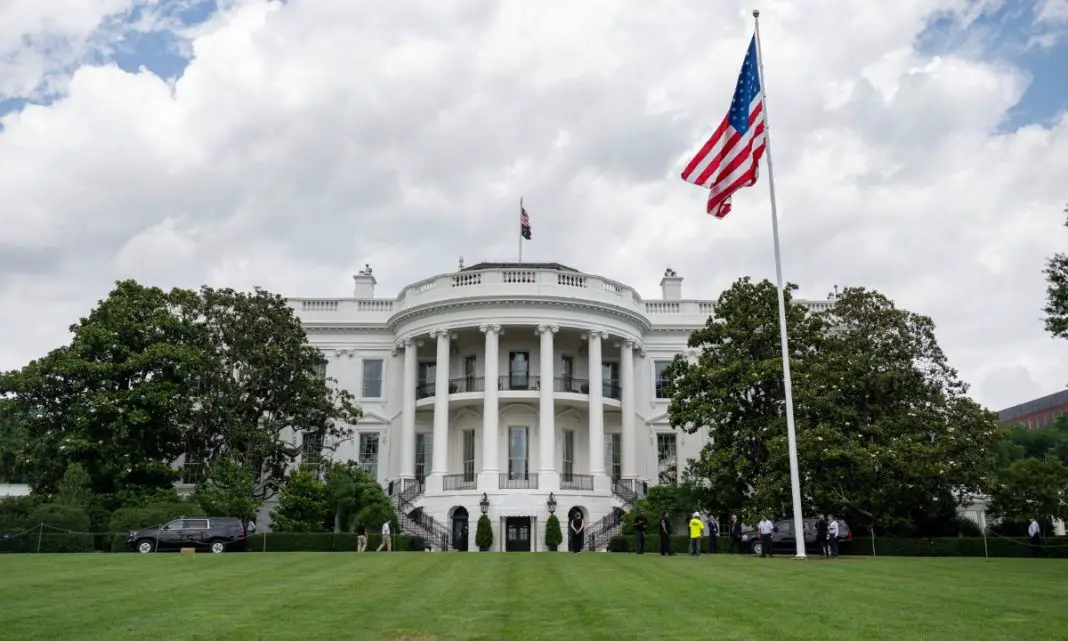U.S. Tech Giants Secure Revenue-Sharing Deal to Boost American Competitiveness
Nvidia and AMD have struck an innovative agreement to contribute 15% of their earnings from semiconductor sales to China back to the U.S. government, paving the way for renewed export licenses. This arrangement not only enables American companies to re-enter a massive global market but also generates significant funds that could support domestic priorities like infrastructure, defense, and innovation, ultimately benefiting U.S. taxpayers and the economy.
The Trump administration initially paused exports of cutting-edge chips to China in April due to security considerations, but by July, Nvidia and AMD announced that approvals had been granted to sell models like the H20 and MI308, key components in AI advancements. President Trump detailed the deal during a Monday press briefing, explaining that he had aimed for a 20% share when Nvidia sought permission to export the “obsolete” H20 chip, but settled at 15% after discussions with CEO Jensen Huang—highlighting a negotiation that ensures American firms stay competitive while directing revenue homeward.
“So we negotiated a little deal. So he’s selling a essentially old chip,” Trump said.
Nvidia declined to delve into the agreement’s specifics or its reciprocal aspects but affirmed commitment to U.S. guidelines. “We follow rules the U.S. government sets for our participation in worldwide markets. While we haven’t shipped H20 to China for months, we hope export control rules will let America compete in China and worldwide,” Nvidia stated to the Associated Press. “America cannot repeat 5G and lose telecommunication leadership. America’s AI tech stack can be the world’s standard if we race.”
AMD did not respond promptly to inquiries. Commerce Secretary Howard Lutnick noted in a July CNBC interview that the chip sales resumption ties into a trade pact on rare earth magnets, potentially strengthening U.S. supply chains and reducing dependency on foreign sources.
Enhancing U.S. Economic Strength Through Strategic Exports
This revenue-sharing model stands to inject billions into federal coffers, as Nvidia previously estimated that export restrictions could cost them $5.5 billion in lost opportunities. By resuming sales, American companies can capture a share of China’s vast tech market, fostering job growth in the U.S. semiconductor sector and reinforcing leadership in AI—a field critical for future economic dominance and national prosperity.
Advocates point out that such controls, while debated, help maintain America’s edge in the U.S.-China AI competition. Supporters argue these measures slow adversarial advancements, giving domestic innovators time to widen their lead, while critics highlight potential loopholes that might accelerate foreign progress, as seen with China’s DeepSeek AI chatbot launch in January. Nonetheless, the deal allows U.S. firms to compete globally without fully ceding ground, warning that overly strict bans could drive allies toward Chinese alternatives, harming American exports and influence.
Addressing Concerns While Prioritizing American Benefits
While the agreement has drawn scrutiny, its potential to fund key initiatives points to a forward-thinking approach to balancing security and economic gains for everyday Americans.
Rep. John Moolenaar, Republican chair of the House Select Committee on China, voiced reservations: “There are questions about the legal basis for doing so. Export controls are a frontline defense in protecting our national security, and we should not set a precedent that incentivizes the government to grant licenses to sell China technology that will enhance its AI capabilities.”
The committee’s top Democrat, Rep. Raja Krishnamoorthi, echoed calls for clarity: “a dangerous misuse of export controls that undermines our national security.” He added, “Our export control regime must be based on genuine security considerations, not creative taxation schemes disguised as national security policy. Chip export controls aren’t bargaining chips, and they’re not casino chips either. We shouldn’t be gambling with our national security to raise revenue.”
Derek Scissors, a China specialist at the American Enterprise Institute, questioned its longevity: “There’s no precedent for this, probably because export taxes are unconstitutional. They call it a fee, but 15% of sales revenue is about a standard a tax as it comes. For this reason, I don’t think the ‘arrangement’ is at all durable.”
“If it were to last, it has two possible implications. First, there’s a possible export tax that high-profile companies and goods must consider. Or the tax only applies in exceptional situations, such as changing export controls. Then we’d risk national security for the sake of tax revenue, which is effectively the same as cutting the defense budget,” Scissors said.
Despite these points, the setup could channel resources toward bolstering U.S. defenses and tech R&D, ensuring long-term advantages for American workers and innovation hubs.
What do you think about this latest deal by the United States, Nvidia, and AMD? Let us know what you think by commenting down below!

